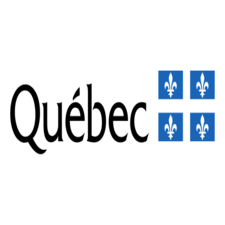Drilling
Type of resources
Topics
Keywords
Contact for the resource
Provided by
Formats
Representation types
Update frequencies
status
-

The Hydrogeological Information System (HIS) contains the physical characteristics of wells and boreholes (location, depth, stratigraphy encountered, etc.) mainly from drilling reports transmitted by well drillers for groundwater sampling installations serving private drinking water residences. The geographic coverage corresponds to all of Quebec although most of the data are found in the south of the province. A monthly update is made. SIH data can be useful for hydrogeology professionals, the academic community and a wider audience in order to make interpretations on portions of territory, for example on the depth of the rock in a sector, or to consult more precise points of information such as the description of a specific identified well.**This third party metadata element was translated using an automated translation tool (Amazon Translate).**
-

The term “geotechnical investigation site” refers to locations where geotechnical (surveys and instrumentation) and geophysical data are available. This data includes: Geotechnical investigation sites (site_inv_geotech_p): Geotechnical surveys produced by or for the Ministry from the 1990s, from the active database of the Directorate of Geotechnics and Geology (DGG). Data is added as it is validated. This file is accompanied by a Stratigraphic Characteristics table (site_inv_geotech _STRATI.csv). This contains stratigraphic information for the majority of sites and can be linked to the location file using the “NO_UNIQUE” primary key. BDG geotechnical investigation sites (site_inv_geotech_bdg_p): Geotechnical drilling and drilling from an “inactive” database entrusted to the DGG by the Ministry of Natural Resources and Wildlife (MRNF), since the mid-1980s. These are drilling and survey data compiled by the MRNF in the 70s and 80s for “predictive” or “geotechnical soil suitability” mapping campaigns. As it is an inactive database (not evolving), there are no updates to be expected. **This third party metadata element was translated using an automated translation tool (Amazon Translate).**
-

These projects aim to draw up a realistic and concrete portrait of groundwater resources in municipal territories in southern Quebec. They were carried out by university research teams, in partnership with regional actors, in order to provide the knowledge essential for sustainable and integrated management of resources in a context of climate change. This knowledge is available to the general public, in the form of databases, cartographic representations, summary and scientific reports and cartographic atlases, in various formats, for almost all of the municipal territory of southern Quebec. In particular, they provide information on the quality, quantity and vulnerability of the resource. They are useful for water professionals working for example in the field of water research for municipal water supply, resource protection or university research. They are also useful in ensuring the compatibility of development and land use planning with the protection of water resources. For more information, consult the Groundwater Knowledge Projects page on the website of the Ministry of the Environment and the Fight against Climate Change.**This third party metadata element was translated using an automated translation tool (Amazon Translate).**
 Arctic SDI catalogue
Arctic SDI catalogue